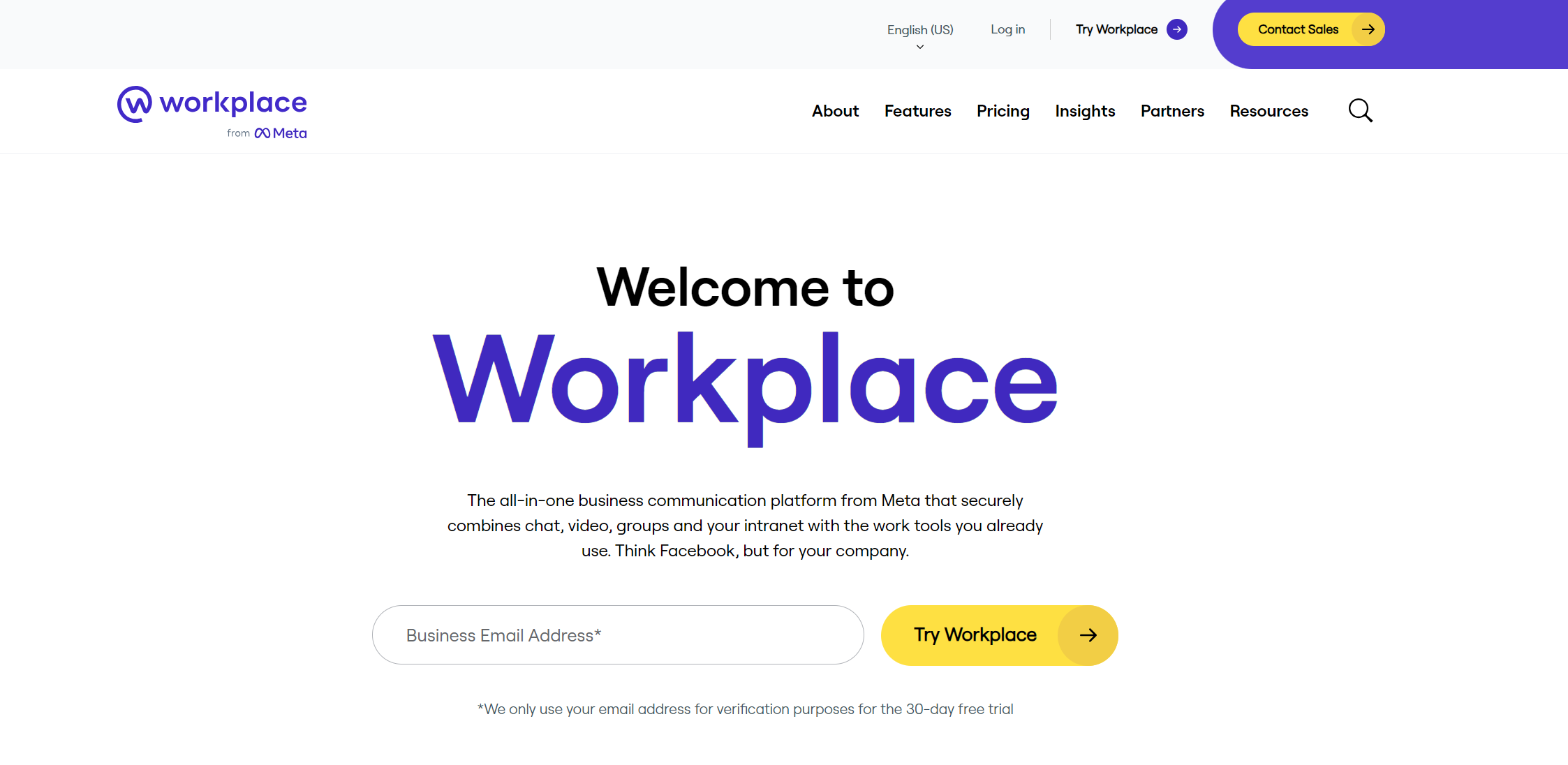Meta, formerly known as Facebook, is closing down its enterprise communications platform,
Workplace. The service will be available until September 2025, then read-only until May 2026, after which it will be fully decommissioned. Meta recommends Workvivo, owned by Zoom, as an alternative for current users. This decision aligns with Meta's strategic shift towards AI and its desire to streamline operations by eliminating non-core projects. Despite some success, Workplace struggled to compete with Slack and Microsoft Teams and ultimately could not sustain growth post-pandemic.

Meta, formerly known as Facebook, is closing down its enterprise communication platform,
Workplace, marking the end of a decade-long endeavor to penetrate the enterprise productivity market. The company will maintain the service until September 2025, followed by a read-only phase until May 2026, after which Workplace will be completely decommissioned.
This move aligns with Meta's broader strategic pivot towards artificial intelligence and the streamlining of its operations to focus on core projects. Meta has recommended Workvivo, a platform acquired by Zoom in 2023, as a migration-ready alternative for current Workplace users.
Transition Details and Timeline
Meta's memo to Workplace customers outlines a phased approach to the shutdown:
- Until August 31, 2025: Workplace will operate as usual.
- From September 1, 2025 to May 31, 2026: The platform will be free of charge but limited to read-only access for data download.
- Post-May 31, 2026: Full decommissioning of the service.
To assist with the transition, Meta will offer a 50% discount on Workplace services starting September 1, 2024, and will work closely with Zoom to facilitate a seamless migration to
Workvivo.
The Rise and Fall of Workplace
Launched originally as Facebook @ Work, Workplace was intended to capitalize on Facebook's internal communication tools to offer a business-oriented solution. Spearheaded by Lars Rasmussen, a co-creator of Google Maps, Workplace aimed to provide a robust platform for team communication and productivity.
Despite securing significant customers and integrating third-party applications to enhance productivity, Workplace struggled to compete against rising stars like Slack and Microsoft Teams. The pandemic further impacted growth, and key personnel departures weakened the division’s momentum.
Strategic Reassessment
Meta's decision to shutter Workplace is part of a broader reevaluation of its project portfolio. With a renewed focus on AI, Meta is eliminating non-core initiatives to streamline operations and concentrate on areas with higher strategic importance.
A source within the company commented, “Growth slowed down after the pandemic, and with Meta redefining its identity and priorities, it makes sense to decisively close non-core projects.”
Conclusion
The closure of Workplace signifies Meta’s strategic shift and the evolving landscape of enterprise communication tools. As Meta continues to innovate and focus on AI-driven projects, users of Workplace are encouraged to transition to Workvivo to ensure continuity in their enterprise communication needs.
Meta’s move reflects the competitive nature of the enterprise communication market and underscores the company’s commitment to evolving its product offerings in alignment with its strategic goals.

